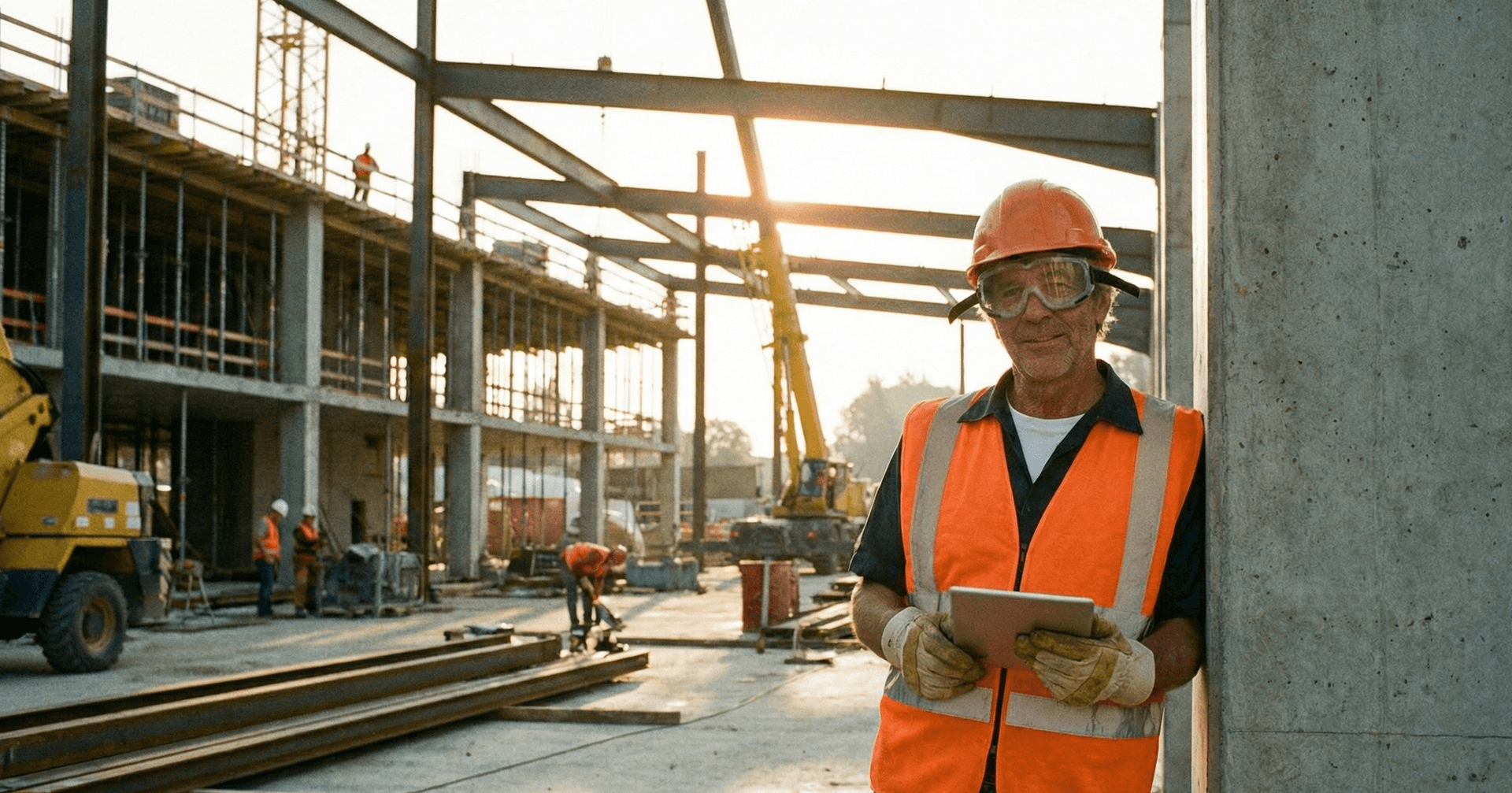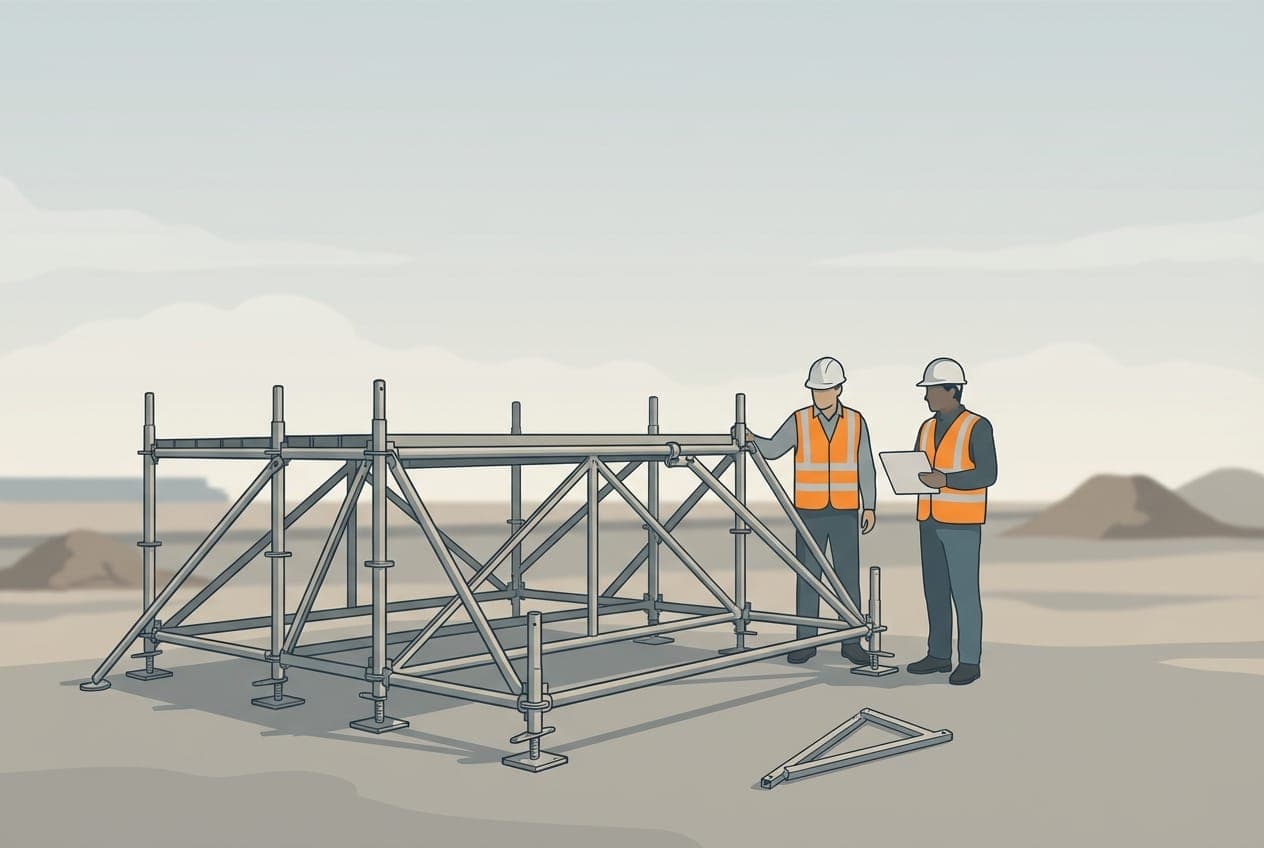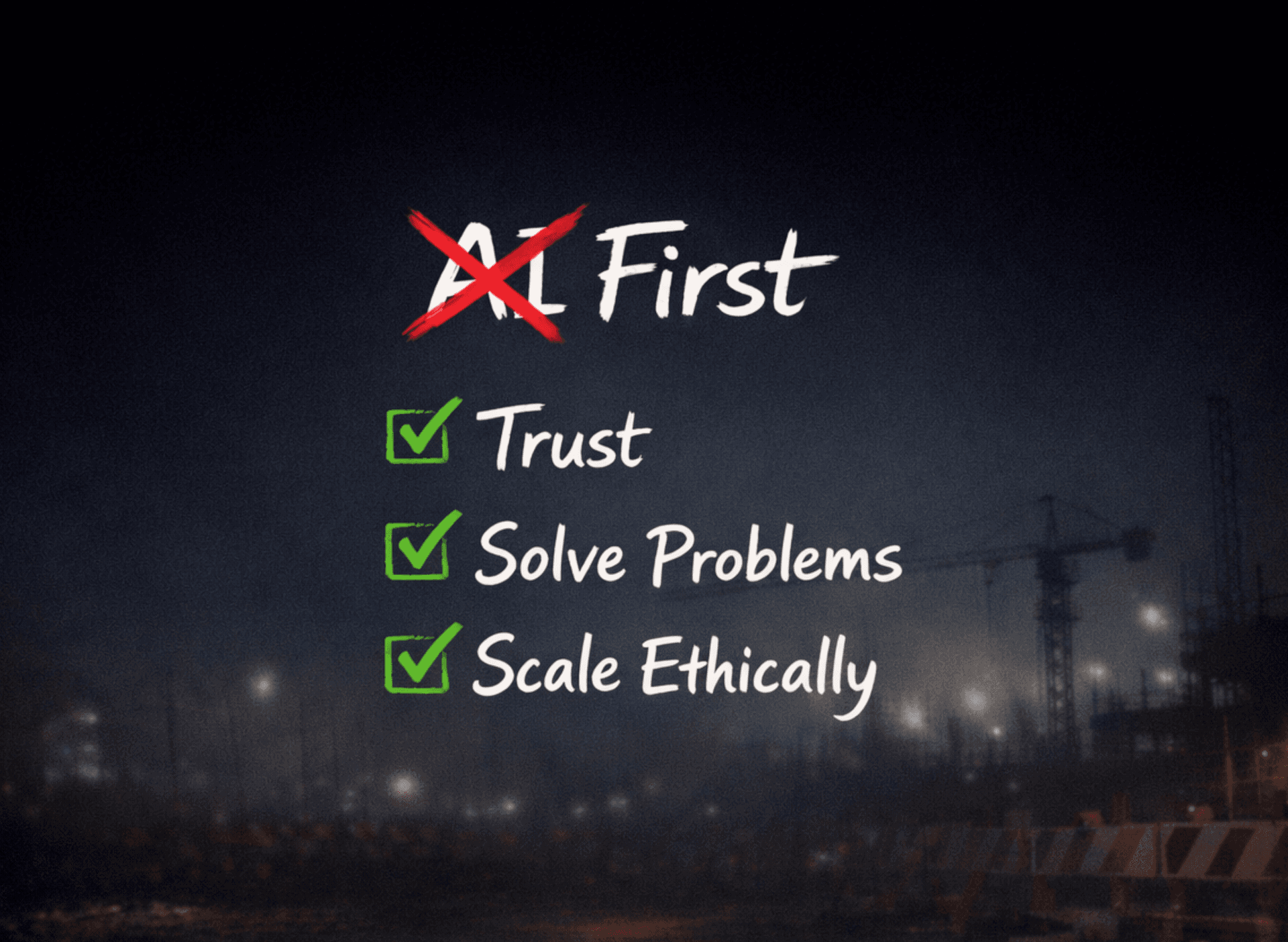The Backpacker’s Guide to Safety Leadership

Brady Keene
Co-founder, COO and Head of Safety

I’ve been watching a lot of YouTube lately. Not the algorithm-driven drama or tech reviews, but creators traveling to every country in the world with nothing more than a backpack, a phone, and a tent. No hotel bookings. No production crew. Just resourcefulness, grit, and a commitment to exploring every corner of the globe, one uncertain night at a time.
At first glance, this might seem far removed from the world of occupational safety and health. But the more I watch, the clearer the connection becomes. These travelers are living, breathing safety case studies.
Their journeys reveal five core principles that OSH professionals and leaders would do well to revisit.
1. Risk Is Inevitable. Preparation Is Not Optional.
These travelers routinely walk into unknowns: new languages, cultural norms, food safety standards, road rules, weather conditions, and political climates. It is not just adventurous, it is high-risk. And yet the best ones do not wing it. They prepare.
They study the context. They listen to locals. They stay alert. In safety terms, that is hazard recognition and risk anticipation. It is pre-task planning without a formal JHA. They do not always avoid the hazard, but they are rarely surprised by it. That is the difference.
In our world, risk is everywhere, and growing more complex. Preparation is not about perfection. It is about minimizing surprise.
2. Travel Light, Think Deep: Systems Over Stuff
When you live out of a backpack, every item has to justify its weight. The smartest travelers think in systems. A headlamp is not just a flashlight, it is a signal, a task light, and a safety tool. A lighter becomes a firestarter, a bug deterrent, a water purifier, and sometimes a way to gain a friend through the light of a cigarette.
This kind of systems thinking is what separates busy safety programs from effective ones. If your policies, inspections, and training modules are heavy but disconnected, they will not hold under stress. But if every component reinforces the next, you build resilience into the system.
Minimalist travel forces clarity. So should safety.
3. Psychological Safety Is Survival, Not Luxury
Watch enough solo backpackers and you start to notice a pattern. They talk about fear. About loneliness. About that moment when they realize they need help.
The most successful travelers do not hide these moments. They lean into them. They ask strangers for guidance. They trust a gut feeling and change course. That is not weakness. That is survival.
In the workplace, psychological safety works the same way. If a worker cannot say "I am not sure" or "This feels off," then you do not have a safety culture. You have a compliance program with blind spots. Real safety starts when people feel safe enough to speak.
4. Learning Happens on the Move
No amount of research can fully prepare you for your first night alone in a foreign country. You learn through experience. Through doing the wrong thing, quickly realizing it, and adjusting.
The same applies to safety. Classroom time matters. So do SOPs and onboarding. But nothing replaces the power of in-field learning. Near-miss reporting, after-action reviews, real-time coaching, these are not extras. They are essential.
When experience becomes data, and data becomes insight, safety systems improve.
5. Resilience Is Earned, Not Bought
You can have the best gear in the world and still fail if your mindset is brittle. Backpackers learn to adapt, not because they have perfect plans, but because they have practiced flexibility. When the road washes out or the host cancels, they pivot.
Resilience in OSH is no different. It is not about enduring more. It is about recovering faster, smarter, and with fewer consequences. That means embedding recovery pathways into your systems. It means designing for the unexpected, not just the ideal.
We cannot eliminate all hazards. But we can build teams that bounce back better.
From Border Crossings to Safety Briefings
Watching these solo travelers, navigating language barriers, unsafe roads, and unpredictable environments, has made me think differently about the work we do in safety and health. These are not just adventurers. They are system thinkers, risk analysts, communicators, and learners.
The environments may differ, but the principles are the same. Curiosity matters. Preparation matters. Humility matters. And in both travel and safety, what saves you is not the checklist, it is how you think when the checklist runs out.
Next time you watch someone step off a bus in a city they have never seen, with nothing but a pack and a plan, do not just see a traveler. See a safety leader in disguise.
Related Posts
Continue reading with these related articles


